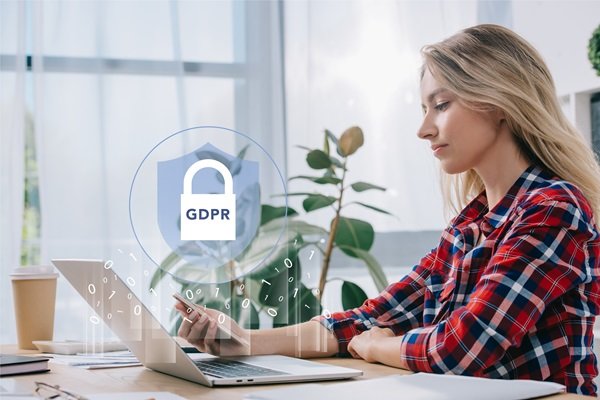
Tips to keep your company GDPR compliant while working from home
Published on December 30th, 2024
Introduction
The shift to remote work has become a permanent feature for many organizations, with employees working from home more than ever before. While this transition offers flexibility, it also brings new challenges in maintaining data security and ensuring compliance with regulations like the General Data Protection Regulation (GDPR). GDPR sets strict rules on how companies must handle personal data, and these obligations apply even when employees work remotely. This article provides key tips for maintaining GDPR compliance in a remote work setting, helping protect personal data and your organization’s reputation.
1. Educate Your Employees on GDPR
A crucial step in maintaining GDPR compliance is ensuring that your employees understand their responsibilities when it comes to data protection. Train them on the basics of GDPR, such as data subject rights, data minimization, and securing personal data. Regular refresher courses and awareness campaigns will help reinforce these principles. When employees understand the importance of GDPR, they are more likely to handle data correctly.
Why it matters: Without clear understanding, employees may unknowingly mishandle data, putting the company at risk of non-compliance.
2. Secure Remote Access and Devices
Remote work means employees access company data from various devices and locations. To protect sensitive information, ensure all devices are encrypted and have updated security software. Employees should also use VPNs (Virtual Private Networks) to secure internet connections and enable multi-factor authentication (MFA) for accessing company systems. These measures reduce the risk of unauthorized access to personal data.
Why it matters: Cybercriminals often target remote setups, and weak access controls can lead to data breaches.
3. Implement Strong Data Management Policies
Develop clear data management policies for handling, storing, and sharing personal data. These should cover guidelines for storing data securely on personal devices, using encrypted channels for file sharing, and avoiding personal email addresses for work-related communication. Ensure that any third-party services your employees use are GDPR-compliant.
Why it matters: Clear policies prevent accidental breaches and ensure consistency in data handling across the organization.
4. Monitor and Control Data Access
It can be difficult to track who has access to what data in a remote work environment. Implement role-based access control (RBAC) to limit data access based on job functions. Regularly review and update permissions to ensure that only authorized personnel can access sensitive data.
Why it matters: Limiting access minimizes the risk of internal breaches and reduces the chance of sensitive data being mishandled.
5. Backup Data and Ensure Disaster Recovery Plans
Proper backup procedures and disaster recovery plans are vital for GDPR compliance. If a data breach or system failure occurs, having an effective recovery plan ensures that lost data can be restored quickly. Regularly back up data and store it securely to avoid exposure.
Why it matters: Data loss can cause major disruptions. Without a backup plan, companies may struggle to meet GDPR’s data protection and recovery requirements.
6. Safeguard Personal Data in Transit
When employees work from home, transmitting sensitive data over the internet is common. Ensure that all personal data transmitted between remote workers and company servers is encrypted using SSL/TLS. Employees should avoid using unsecured channels, such as email or unencrypted file-sharing platforms, to send sensitive data.
Why it matters: Data in transit is vulnerable to interception, and encrypted communications are essential for GDPR-compliant security.
7. Conduct Regular Audits and Assessments
Regular audits help identify vulnerabilities in remote work processes. Perform periodic assessments to ensure GDPR compliance and evaluate whether employees are following data-handling guidelines. These audits can uncover areas for improvement and help ensure continued compliance.
Why it matters: Regular audits help identify weaknesses before they become major issues, reducing the risk of costly data breaches.
8. Address Data Subject Rights Remotely
Under GDPR, data subjects (employees, customers, etc.) have rights to access, correct, or request the deletion of their personal data. Ensure your remote work infrastructure supports secure channels for submitting and responding to these requests. Provide clear instructions for how data subjects can submit requests and the expected response time.
Why it matters: Timely and compliant responses to data subject rights requests are essential for building trust with customers and employees.
Conclusion
Maintaining GDPR compliance while working remotely is essential for protecting personal data and avoiding legal consequences. By educating employees, securing remote access, implementing strong data management policies, and regularly auditing systems, your company can meet GDPR standards. As remote work continues to grow, staying vigilant about GDPR compliance is crucial in safeguarding both your organization and personal data. By following these tips, you can ensure that your company operates securely and responsibly, building trust with employees and customers alike.
